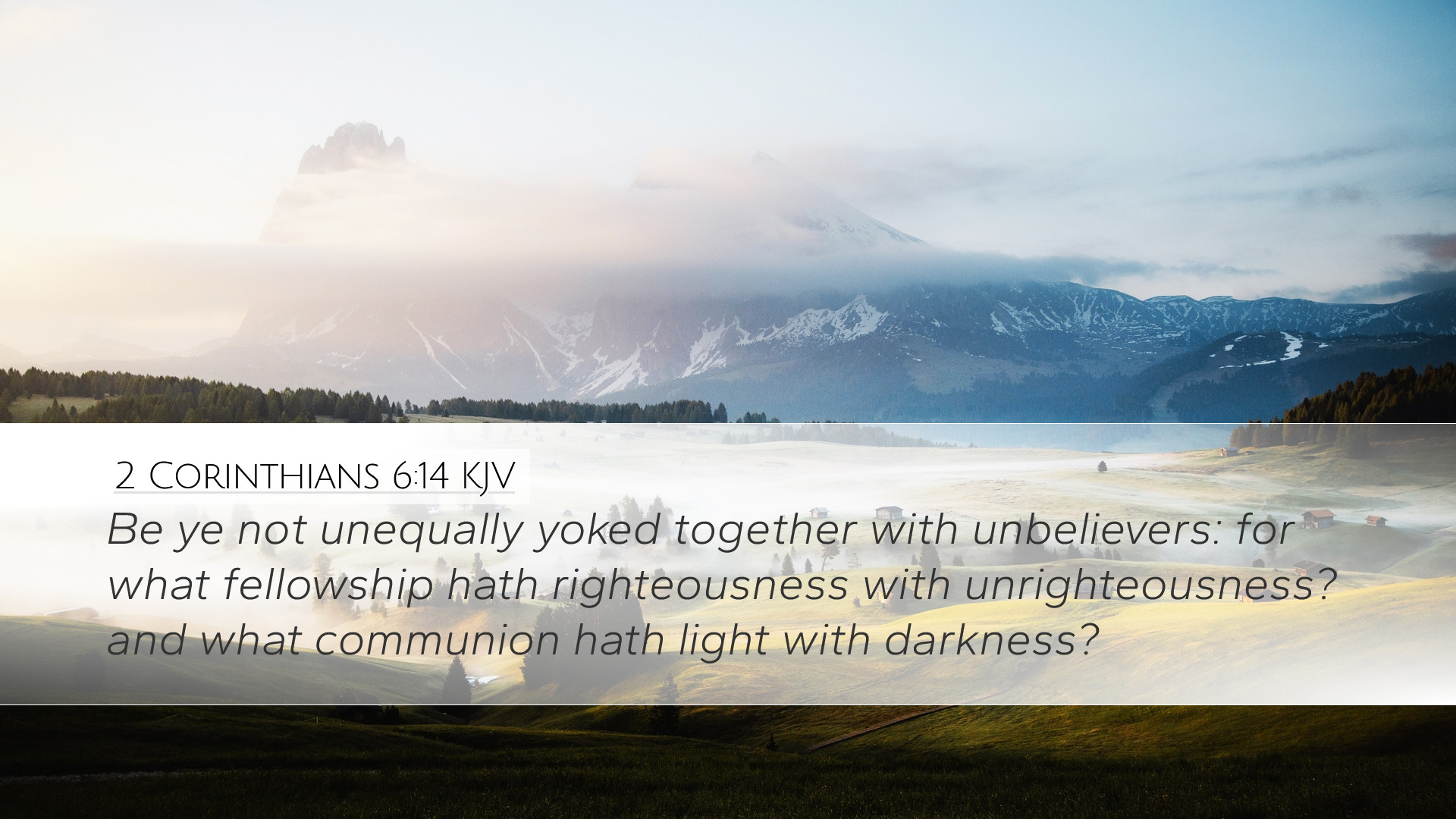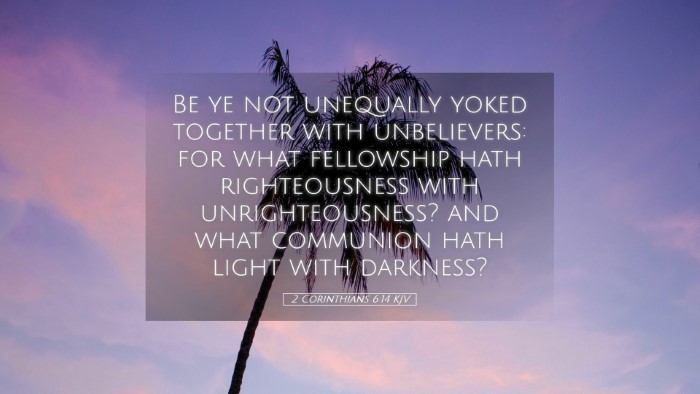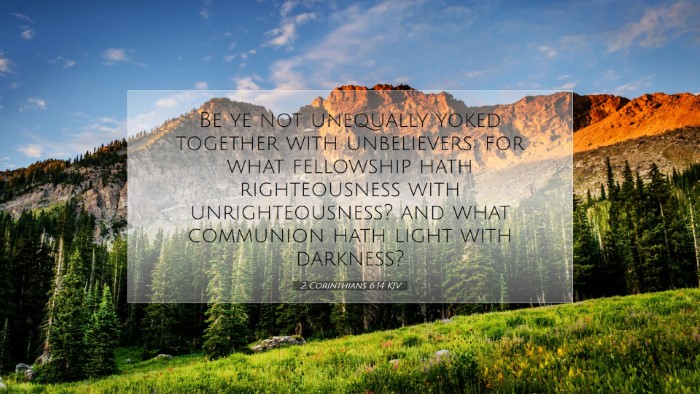Commentary on 2 Corinthians 6:14
Verse Text: "Be not unequally yoked together with unbelievers: for what fellowship hath righteousness with unrighteousness? and what communion hath light with darkness?"
Introduction
This verse from 2 Corinthians serves as a profound exhortation from the Apostle Paul regarding the nature of interpersonal relationships and associations. Paul’s admonition is directed primarily towards the Corinthian church, urging them not to engage in partnerships that could compromise their faith. In this commentary, we will draw insights from well-respected public domain commentaries by Matthew Henry, Albert Barnes, and Adam Clarke to explore the implications of this verse for contemporary believers.
Examination of the Text
Meaning of 'Unequally Yoked'
Matthew Henry comments on the meaning of being "unequally yoked," suggesting that this phrase implies a mismatch in spiritual commitments and values. Just as a yoke is meant to unite pairs of oxen of similar strength and purpose, so too should relationships align on a spiritual level. A believer’s unholy alliances can weaken their spiritual resolve and lead to moral and ethical conflicts.
The Nature of Fellowship
Albert Barnes expands on the concept of 'fellowship,' highlighting that true fellowship is rooted in shared values and beliefs. Paul questions the intrinsic compatibility between righteousness and unrighteousness, suggesting that such relationships threaten the integrity of one’s faith. This is a call for believers to reflect deeply on their social and community bonds, ensuring they are formed with those who share a common faith.
Communion between Light and Darkness
Adam Clarke provides insight into the dichotomy of 'light' and 'darkness,' representing the vast contrast between divine truth and worldly ignorance. He emphasizes that light symbolizes purity, truth, and holiness, while darkness represents sin, error, and chaos. Paul's assertion here is that believers must be vigilant in separating themselves from influences that may draw them away from God.
Theological Implications
This command not to be unequally yoked carries significant theological weight. It underscores the believer's identity in Christ, emphasizing that one’s association should not compromise their witness or spiritual vitality. Believers are called to be in the world but not of it, championing a life that reflects their covenant with God.
- Holiness in Relationships: The principle of holiness permeates interpersonal relationships. This verse serves as a crucial guideline for marriage, friendships, and partnerships, urging believers to critically assess their affiliations.
- Witness to the World: Engaging in relationships with non-believers can present opportunities for witness. However, believers must discern when such relationships cross the line into compromise. The aim is not to separate entirely but to stand firm in faith while engaging the world.
- The Role of Community: Paul’s instructions remind us of the importance of the faith community. Believers are encouraged to cultivate relationships that uplift and challenge them towards godliness and encourage mutual growth.
Practical Applications
Understanding this verse's implications is not merely an academic exercise but a call to practical living. Below are some applications for different contexts:
- For Pastors: Emphasize the importance of church membership and engagement with believers as a means of fostering spiritual growth and accountability.
- For Students: Carefully consider your friendships and partnerships. Engage with those who share similar values to nurture your faith during formative years.
- For Theologians: Explore the historical context of Paul’s ministry in Corinth, understanding how the culture of the time influenced relationships and faith.
- For Scholarly Study: Delve into the wider Pauline corpus for further teaching on associated themes of holiness, righteousness, and Christian conduct in a pluralistic world.
Conclusion
2 Corinthians 6:14 provides a critical framework for understanding the nature of relationships in the life of a believer. By reflecting on the wisdom found in the commentaries of Matthew Henry, Albert Barnes, and Adam Clarke, it becomes evident that the admonitions offered by Paul remain pertinent for today’s church. In a world filled with diverse ideologies and beliefs, believers are called to be discerning in their partnerships, ensuring that their relationships reflect their commitment to Christ and embody the light of the gospel.


